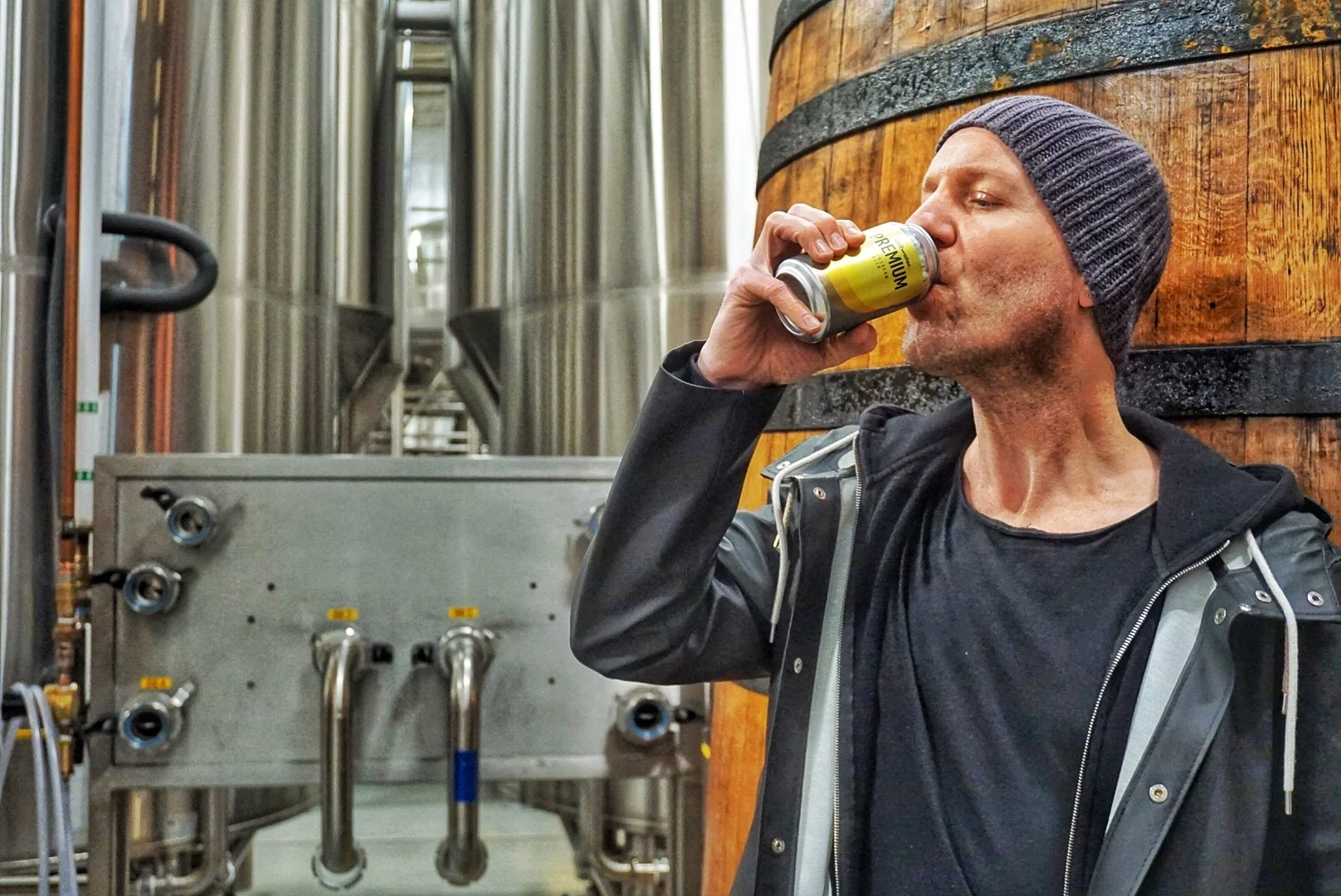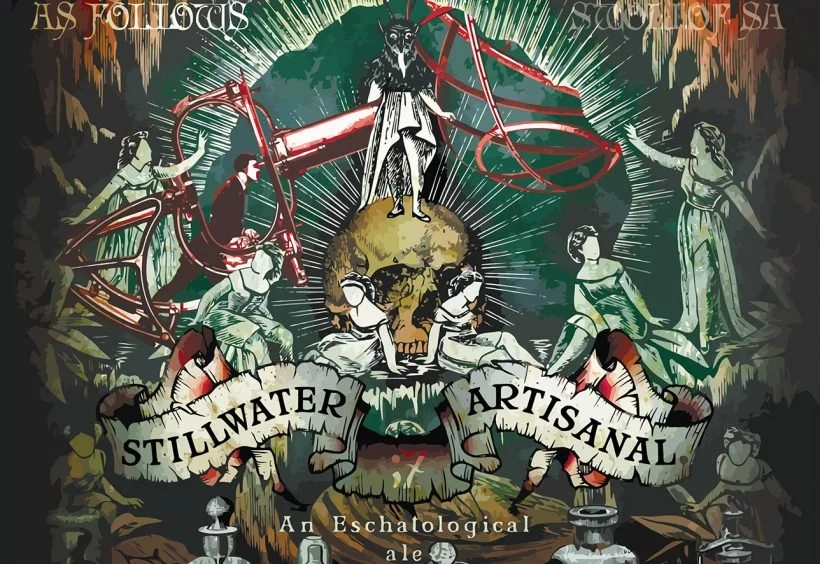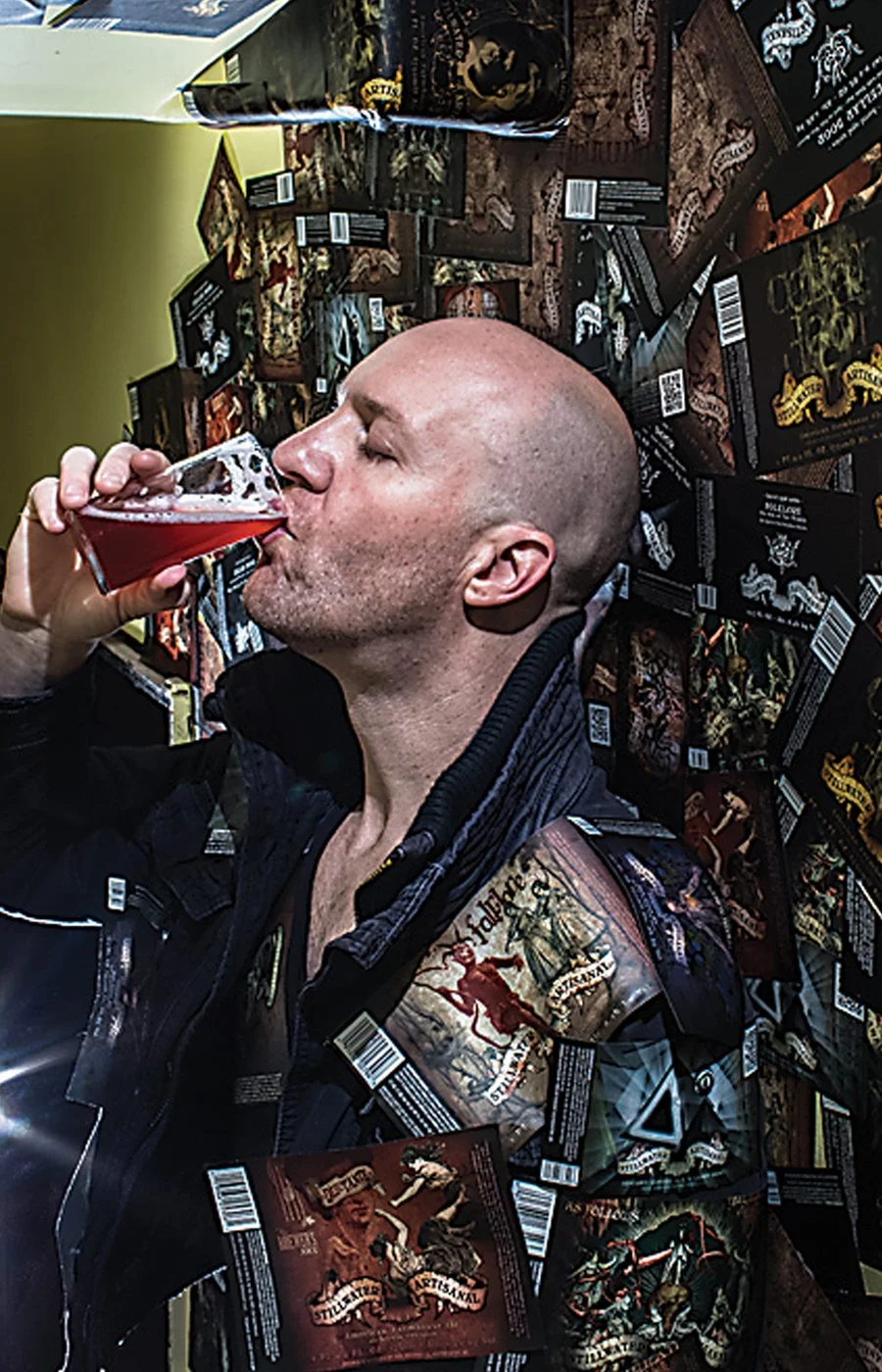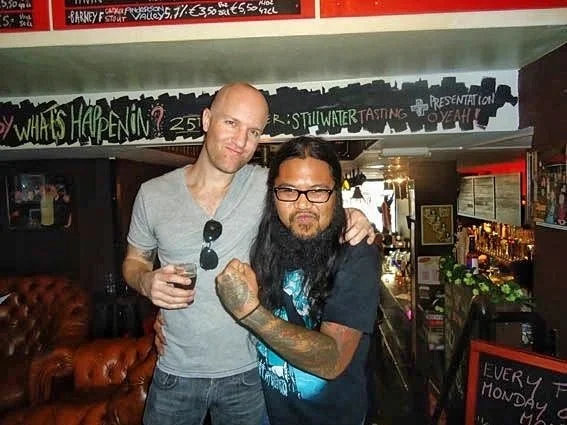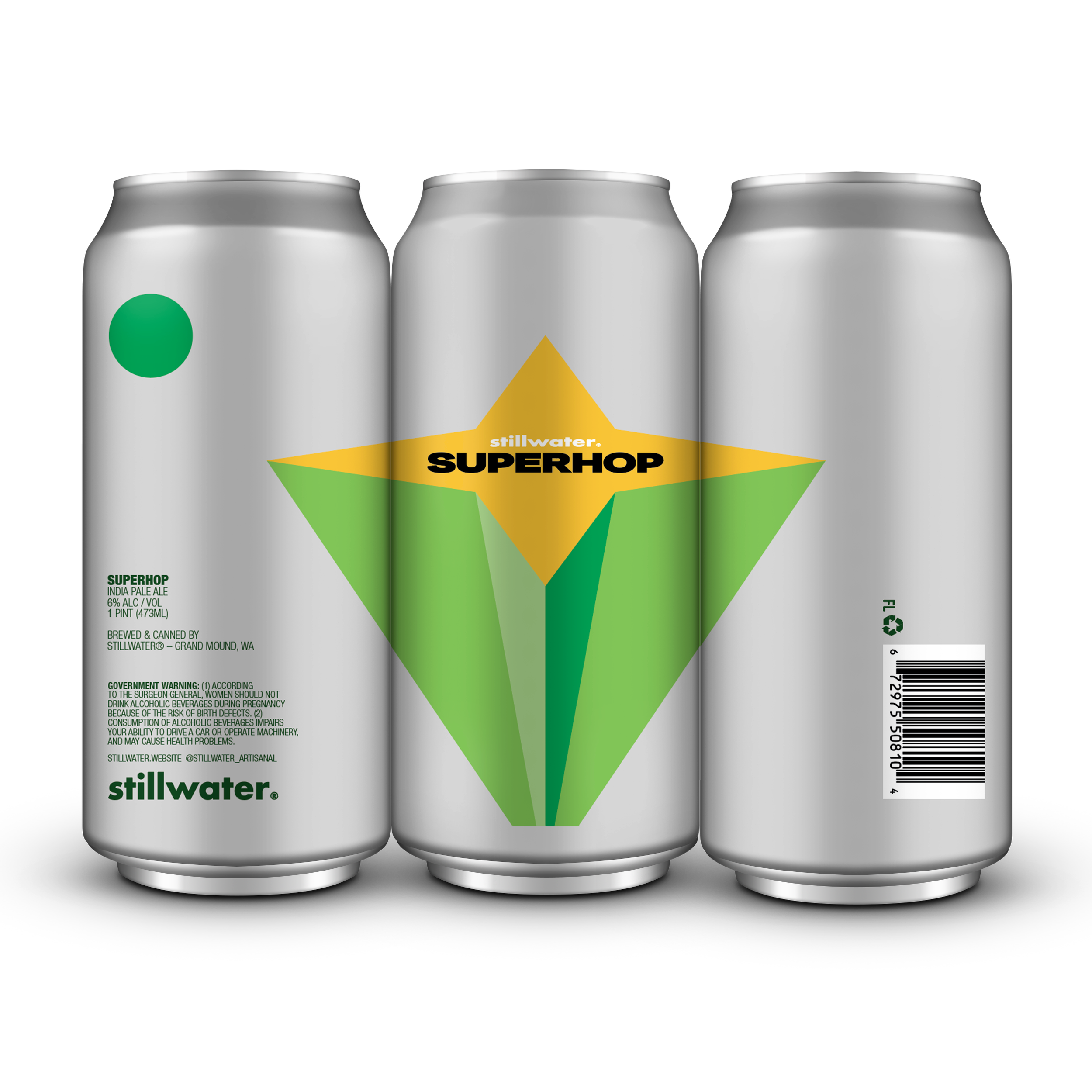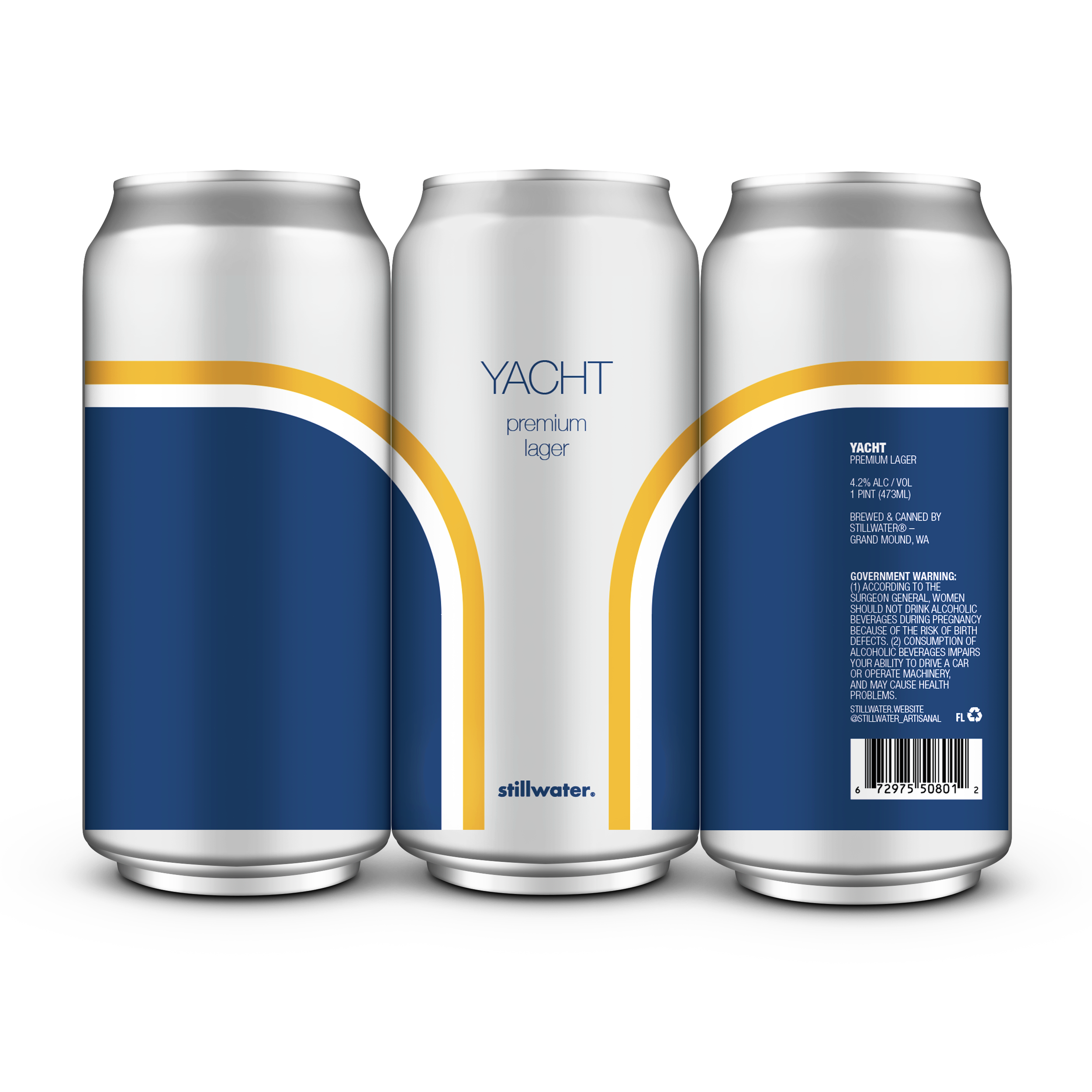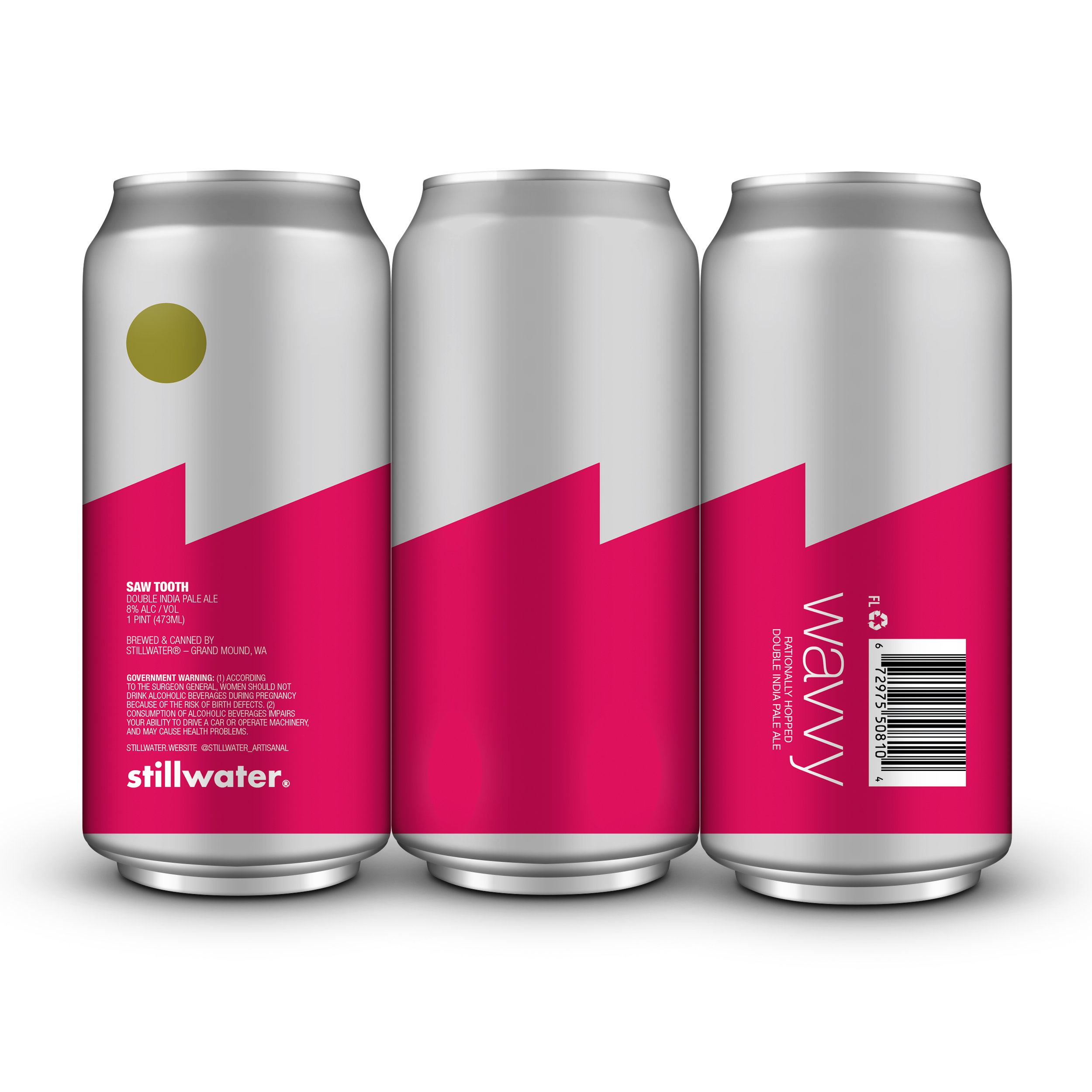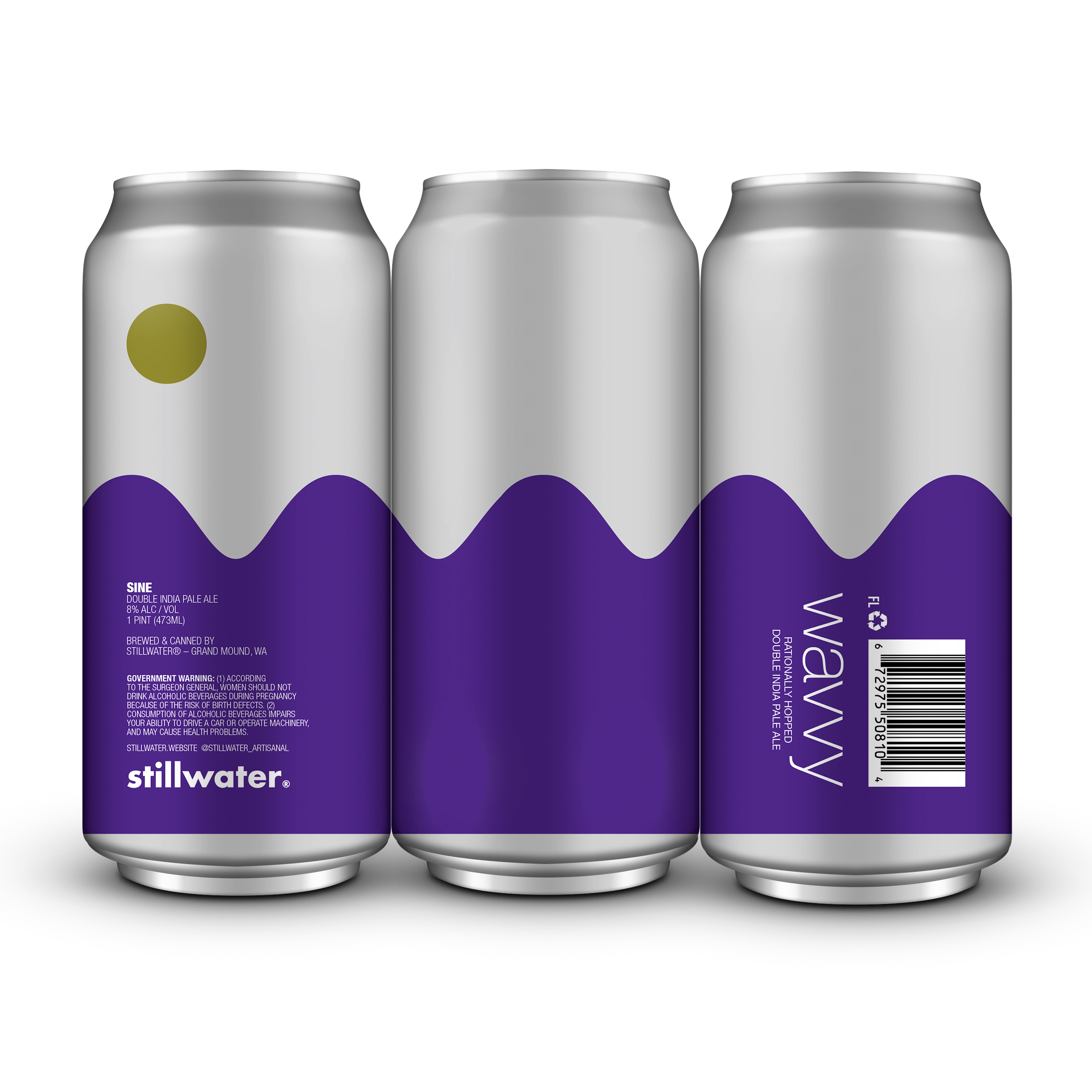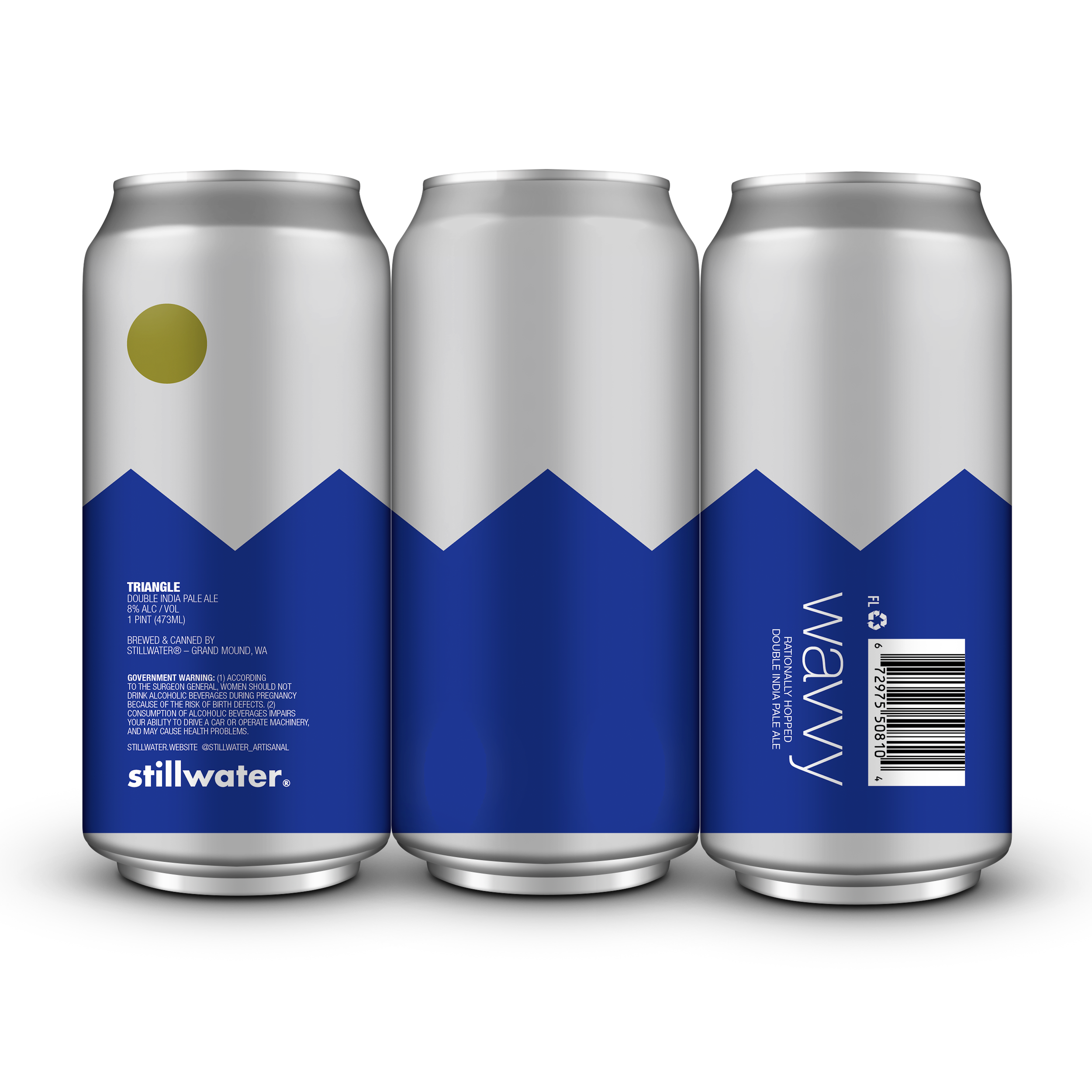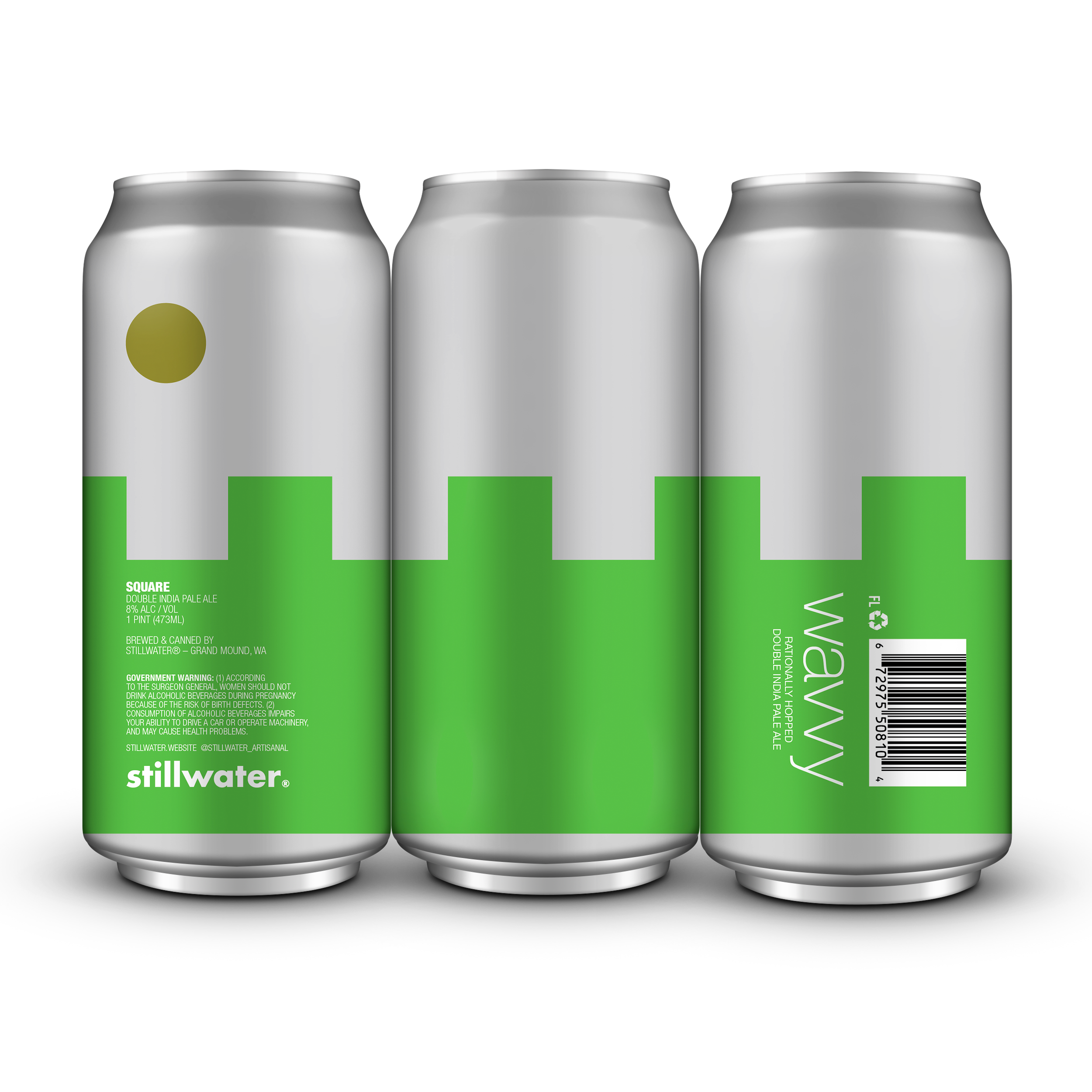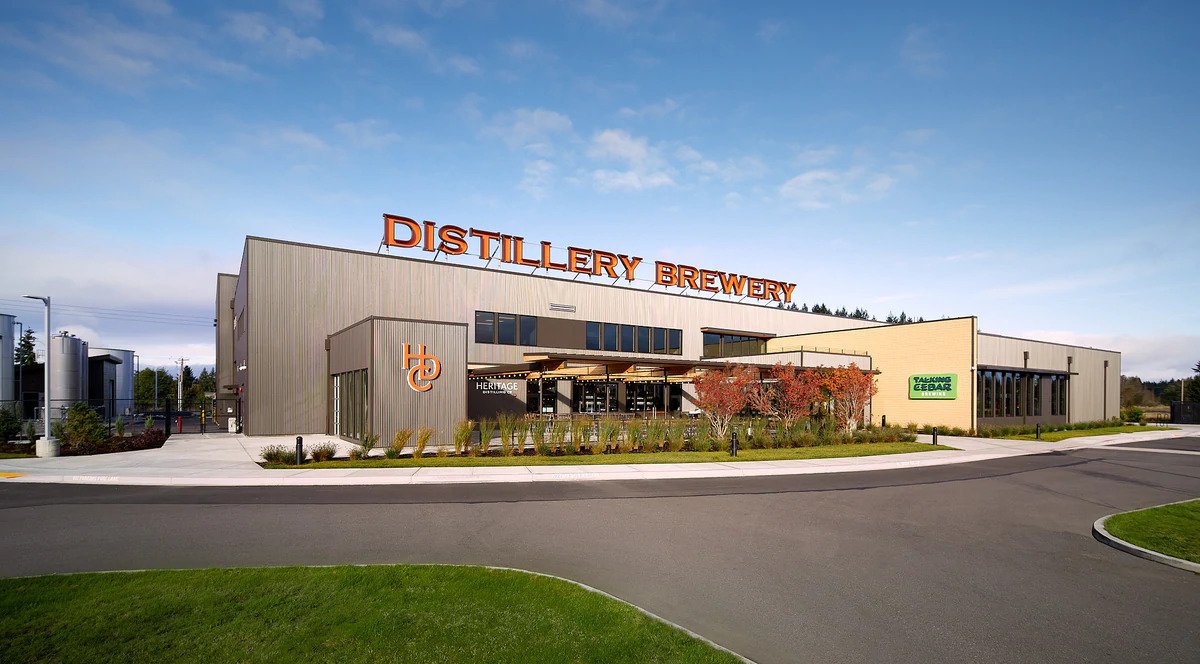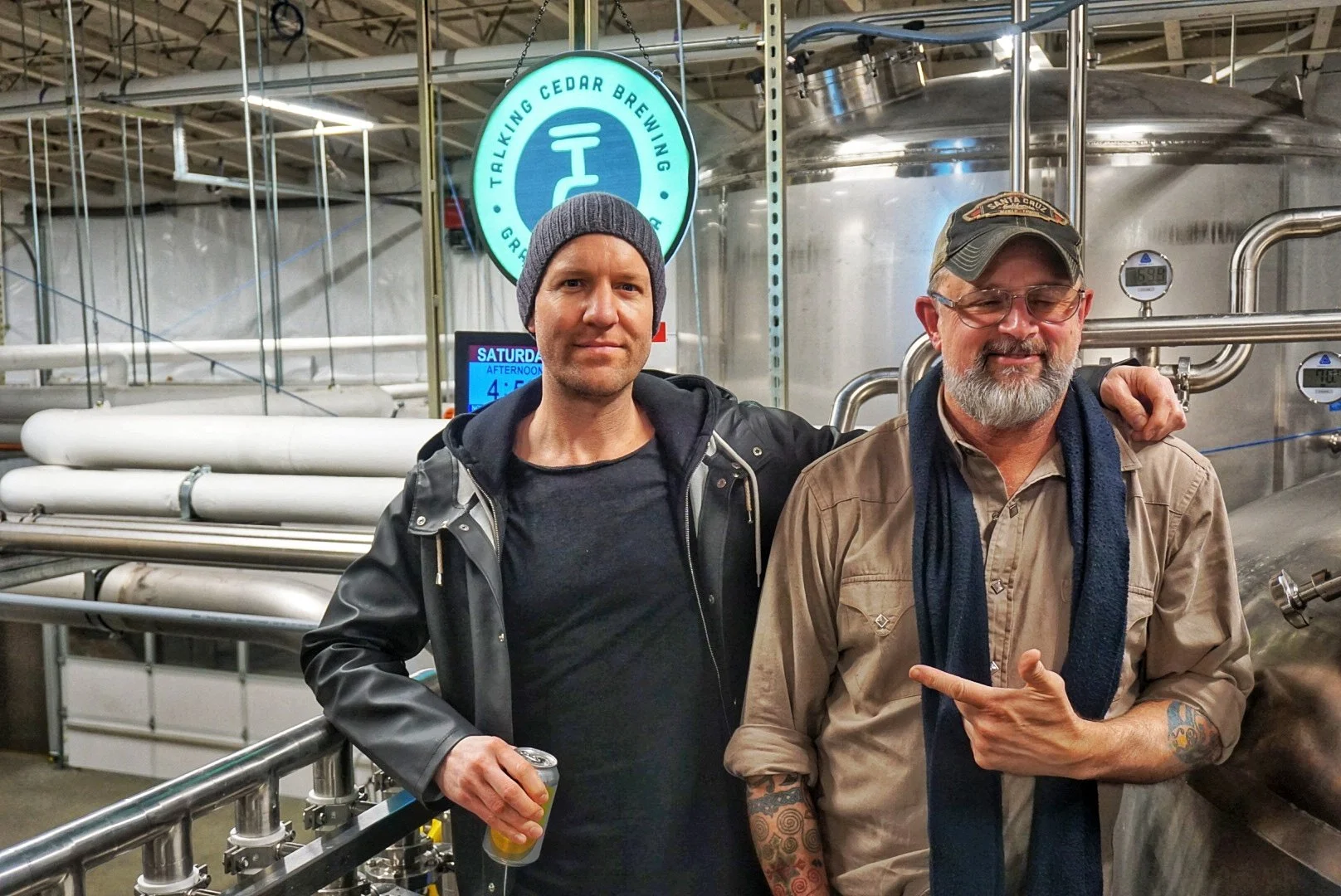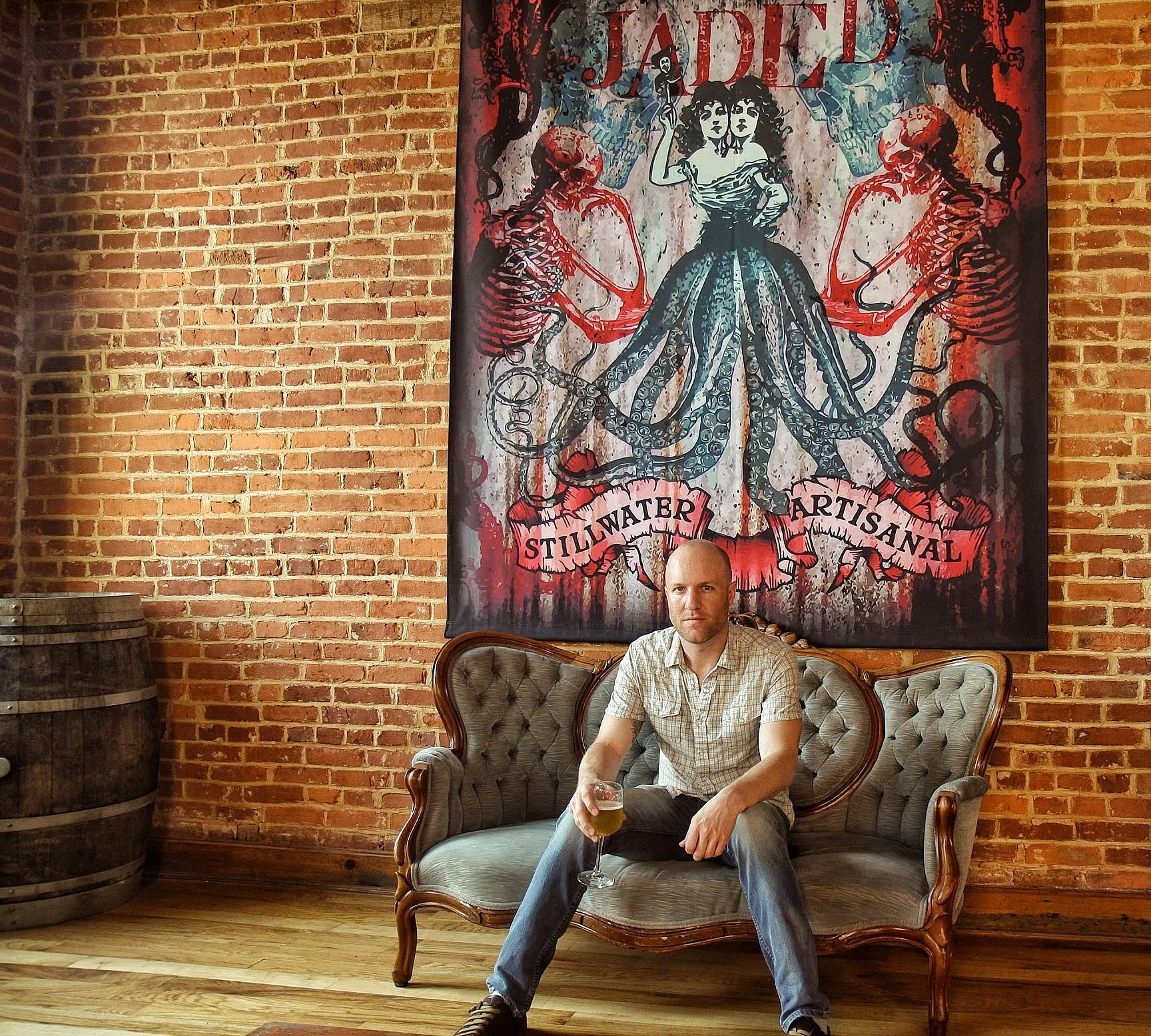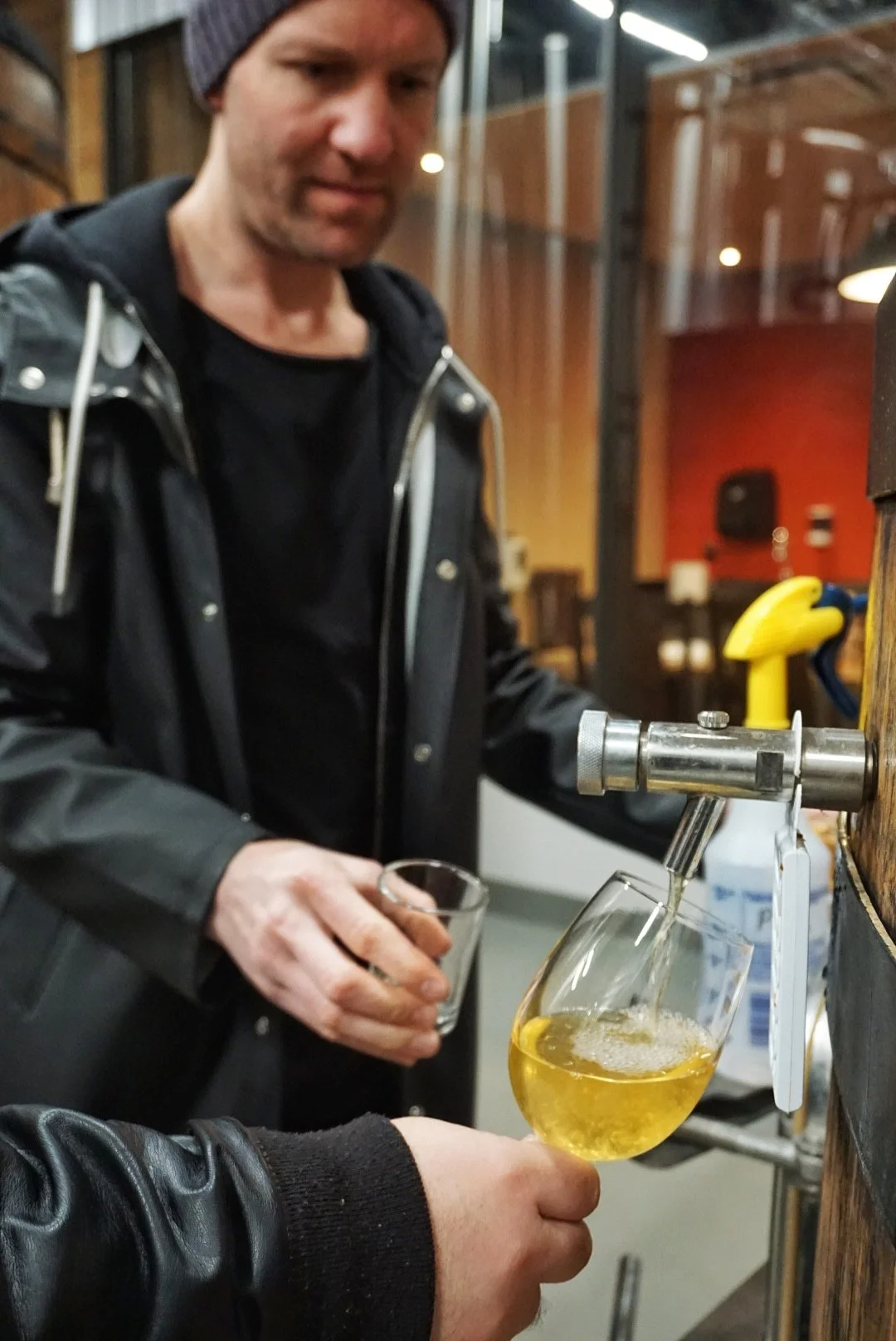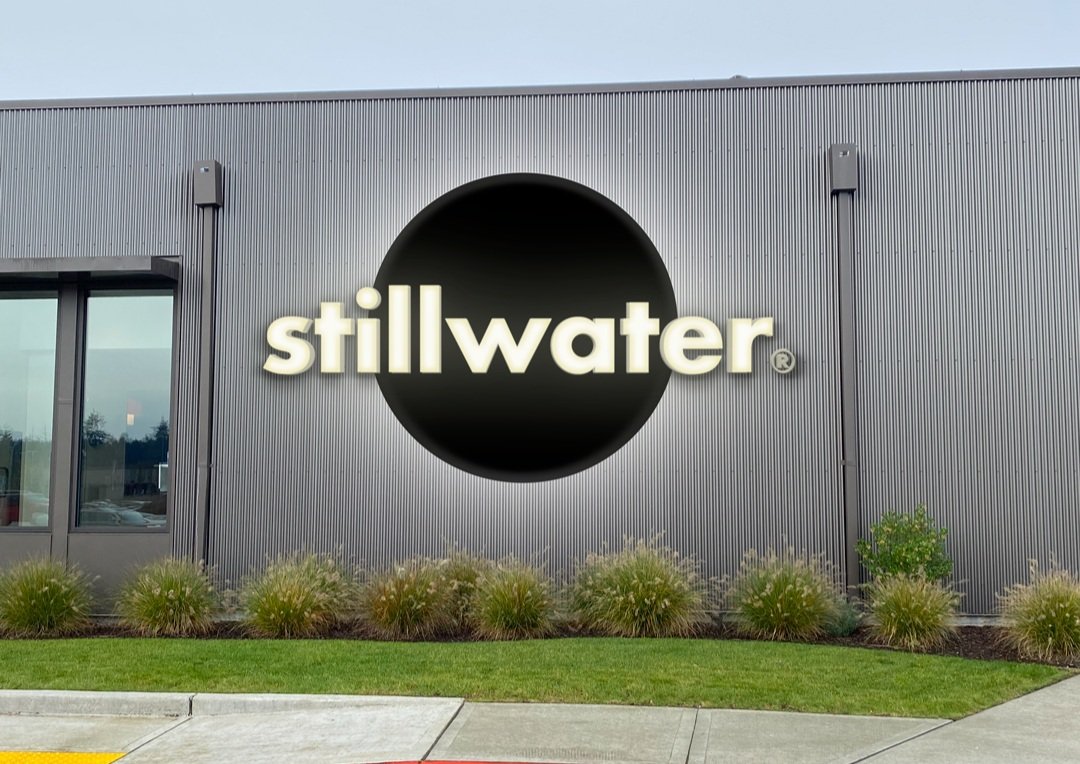Stillwater® finds a home; Nomadic farmhouse brewer settles in Washington
Iconic gypsy Farmhouse pioneer Stillwater Artisanal is giving up the nomadic brewing lifestyle for a Washington home base. Partnering with Talking Cedar brewery & distillery on tribal land, Stillwater will have their first taproom and local production hub.
Brian Strumke was a Baltimore, MD record producer and DJ when he founded Stillwater Artisanal ales in 2010 and helped kickstart the nomadic so-called gypsy brewery movement. It was at the onset of the craft beer renaissance and the public and media were just starting to take notice, it helped that his Saisons and assorted new wave American Farmhouse ales seemed unusual and foreign concepts that quickly piqued the interest of talent agencies and enthusiasts across the world. In 2011 arguably the most influential beer source of the time RateBeer.com named Hill Farmstead #1 and Stillwater #2 on their annually published list of the best new breweries in the world. Strumke went from homebrewer to traveling international beer celebrity with Stillwater beers splashed across magazines and clubs from the east coast to Denmark.
COVID-19 “really fucked up the brand,” of Stillwater according to Strumke. Part of the appeal was traveling around the world making fun one-off beers and attending parties, but during the pandemic there was nothing to watch, nothing for him to share on social media other than the beer cans piling up in his apartment. But, it gave him the time to reevaluate, process where he came from, and where he wants to go with what he calls Stillwater 3.0. “It’s like starting over but with 12 years of history.”
Stillwater Artisanal has now dropped the “Artisanal” from the branding and diversified into post-modern beers that still carry the farmhouse influence but no longer strictly adhere to a specific culture or category. “I called them American Farmhouse because it really doesn’t mean anything,” says Strumke who now resides in Seattle, Washington and has renamed the brand Stillwater® The name, he says, is “ultimately just another play on Nirvana'' that he came up with as his DJ name because he didn’t think his own was catchy enough. “I wanted something that sounded like a real name, and looked like a real name, but had a deeper meaning.”
Strumke has always had a knack for branding and a quest to find true identity. “My life exploration is to be the most balanced and calm and peaceful being I can be. It’s like my monkish kind of path in life,” he says. That path has now led him to give up the nomadic brewer life, abandon a multi-million dollar brewpub project in New York City, and set down permanent roots in Washington state that will give him something he has never had before: a Stillwater taproom and hands on brewery.
“I want Stillwater to get back to a brand that I want to drink.”
Stillwater Artisanal had a more gothic, illustrative, tattoo inspired look when they debuted
ORIGINS
Strumke had mostly given up his dream of being a professional DJ when he started homebrewing stovetop saisons in his kitchen. “I figured it was time to try something new and beer was my analog for creativity,” though he still missed being a DJ, “When I started homebrewing I realized I was better at making beer than I was at making music.”
Brian Strumke. Source: Baltimore Magazine
Then one day Brian Ewing, the owner of 12 Percent Imports, happened to be in Baltimore for a beer release. Mutual friend Chuck Cook convinced Ewing to make a trip over to Strumke’s to try his homebrew and he was blown away by the quality and creativity. At the time Strumke had a business plan for Stillwater, but it had stalled out as he worked the drone of a day job doing IT support. But it was then that things finally clicked.
“I literally said to myself ‘what the fuck happened I used to be cool’ I used to DJ around the world, put records out, what the fuck am I doing sitting in a cubicle all day and googling answers to tech support problems?!”
A light bulb went off, “This guy is all into what I am making, it’s kind of like a record label, I just need to find a brewery that would be like the recording studio and the pressing plant in one. If I go there to make my art, we can package the art. And this dude can be my record label and sell my art. So that’s the way I looked at it, the way I have always looked at it - I’m selling records, selling vinyl, because you couldn’t download the beer and you couldn’t download vinyl.”
Thus the nomadic “gypsy” brewer movement was born as the industry stepped away from shelfie flagship beer brands and into ever rotating releases. Stillwater would drop specialty beer releases into the market like they were songs leaking onto Napster.
“Techno albums were only a couple tracks dropped at a time, and having that same level of quick drops that are consumed quickly almost perfectly describes the competitive transition of small batch beer,” observes Strumke.
EVOLUTION
The Stillwater brand has changed tremendously over the years. There have been 3 design partners starting out with Lee Verzosa, a childhood friend of Strumke’s. Verzosa is a well-rounded artist with an incredible talent for illustration, but he was really interested in being a tatooo artist and you can see that influence in Stillwater’s original look. Over the first 5 years of the brand he designed it all, but as things became more and more digital he wanted to stay more analog in his art. “His stuff was so good but it would take him forever to do it. It’s the craziest tattoo art you've ever seen, it was great and it was awesome and it worked great when we were dropping a beer like once a month,” says Strumke.
In 2010 when things started to blow up Strumke realized the brand had to grow out of its Baltimore identity and so he moved to New York. The production also moved to contract facility 2 Roads Brewing in Conneticut, where they started making brettanomyoces beers in the original Breckenridge location before sour and funky beers were a thing in America. Mike Van Hall took the reins on the label art, as a graphic designer and simultaneously a lawyer he shifted the tone from grunge to pop. “The original art was psychedelic and gothy, it had an emo vibe to it. It was me in my emo state of my artistic career.” After Stillwater was named the #2 new brewery of the year by RateBeer everything had changed.
Strumke was interviewed on NPR and that led to him being offered a television show by Ari Emanuel, the real life person that Jeremy Piven’s character Ari Gold in the HBO hit show Entourage is based off of. Emanuel had founded Endeavor media company and merged it with top Hollywood talent agency William-Morris in 2009. Emanuel was fascinated by the emerging gypsy brewer movement led by Mikkeller, Evil Twin, and Stillwater just as craft beer was being heralded as the next big thing. Next thing he knew, Strumke was traveling around shooting television pilots and meeting with agents.
“I didnt turn into a TV star obviously” he says. “I went from thinking I would find myself more and more in the brewery, but no, I became a celebrity. I took it, that was more in tune with what I had to offer the beer world. I was a homebrewer with a nice palate and I can design things, but I don’t know how good a brewery would operate if I was the guy running the day to day.”
The independent spirit of the one-man vision for Stillwater reached its natural evolution as they came up on their 10th anniversary, that’s when Strumke took full control of the branding himself.
“I was tired of being beholden to other designers when I am an artist myself” starting with their iconic beers like Cellar Door, and Premium, everything became designs by Strumke, expressing his minimalist approach, in stark contrast to the brands original, detailed, hand drawn, and rustic look. “I wanted the new iteration of Stillwater to be more fashion based instead of product based. I was sick of walking into a bottleshop and getting the spins by just looking at the wall with all these crazy colors and cartoons, it’s just too much.” The goal was objects you want to interact with “In a world where all the labels are as loud as possible, you come in as the quiet guy just looking cool.”
Strumke is adamant about the label matching the liquid, it might not make sense to anyone else but he thinks of everything in synestasia; The color needs to match the flavor.
As the brand grew so did Stillwater's relationship with 12 Percent Imports, contract brewing in Colorado and Conneticut with partner facilities has been fruitful. But making hundreds of barrels of beer at a time also meant leaving behind a modicum of control. As Strumke describes it, it was like having a ghost writer.
In 2020 Strumke and his then wife got a second apartment in Seattle. “I came out here with not much of a plan, I wasn’t even sure if I was going to stay. I always wanted to dabble with living on the west coast.”
Strumke was on the verge of signing a multi-million dollar deal to open a Stillwater brewpub in Brooklyn but he pulled out at the 11th hour because “Something didnt feel right” a few weeks later COVID-19 struck, and he found himself in an empty apartment in Seattle re-evaluating everything.
Stillwater was in trouble just as the rest of the craft brewing industry was during the initial COVID-19 shutdown. Strumke was already sick of being held at the whim of companies he had no hand in brewing his beers, but it became unbearable when distribution and production grinded to a halt in the pandemic. The pandemic became an opportunity to take something back, and in a way return to the essence of what the brand was all about.
“Stillwater is a journey, it was my nomadic brewing trip that I just found a way to fund.”
Talking Cedar
Washington’s Chehalis Tribal Enterprises became the first in the country to open an alcohol producing facility on tribal land. To do so they first had to get a racist 1834 law repealed, that bill passed in 2018 and cleared the way for Talking Cedar.
The tribe spent $24 million to construct a massive 60 barrel brewery, a state of the art 35,000 sq. ft. distillery, 2 bars and a gastropub in Grand Mound, Washington in Thurston county. Unfortunately it had the bad luck to open in the middle of a pandemic in 2020. Initially they partnered with Heritage Distilling Co. to utilize their expertise and brand, and they also pivoted to releasing Talking Cedar beers in cans after spending months producing hand sanitizer.
With head of production Bill Lundeen at the helm, Talking Cedar is able to produce world-class fermented beverages but has excess capacity for years. The setup was designed for a long-term partnership, and Brian Strumke found the perfect outfit to settle his Stillwater project into the pacific northwest and take control back from contract brewing outfits.
Bill Lundeen of Talking Cedar says of the arrangement, “We have this massive brewery that was built for contracts and white label beers for other tribes, that has not really come to fruition thanks to the pandemic. I see a lot of ability to push each other [Stillwater] up and into the market.”
Brian Strumke with Bill Lundeen at Talking Cedar
Strumke notes, “Stillwater is a brand that has been around for some time and has a lot of recognition, Talking Cedar is almost the exact opposite.This is the first time I will ever have full control of my production. The only person I have to get through is Bill. But he and Ryan [Myhre] have been down for everything I wanted to do. We wont have to cut corners.”
Chehalis Tribe is investing another $1.5 million dollars to accommodate Stillwater’s production needs. That means more tanks, yeast propogation system, proper can line, and centrifuge. At a pilot brewing facility across the street Stillwater has been small batching his beers for months, dialing recipes in, developing new ones, and assisting Talking Cedar on their own foeder wild ale experiments. The relationship benefits both parties, with Talking Cedar gaining access to Stillwater assets like New Zealand hop contracts and exclusive relationships with providers, distributors, importers, and more. The opportunity will allow Strumke to focus on creative releases instead of bouncing ideas back and forth between breweries across the country. “I just can’t live in that world where I dont have that kind of control” he says.
Nomadic Brewer finds a Home
So what does moving to Washington change for the brand? “Everything” says Strumke.
“I think it’s over. I lived the life of what it means to be a nomadic brewer.”
Talking Cedar is halfway between Strumke’s home in Seattle and the Portland market where he would like to see Stillwater have an increased presence. Strumke’s other brand Fast Fashion with partner Matt Storm already has him making frequent visits and Grand Mound is a perfect pit stop.
Though they just kicked off Stillwater UK in partnership with North Brewing Company in Leeds, the US focus will be on re-engaging fans and finding new ones via independent distribution partners on the west coast. Over the pandemic lockdown Strumke got into homebrewing seltzers, and has plans to launch Stillwater botanical beverages from the in-house Talking Cedar distillery such as a PNW inspired Whiskey, Saison based Gins and health focused soft drinks with adaptogens.
The most exciting prospect for fans of Stillwater and saisons is a taproom and restaurant that they can visit as part of Talking Cedar. How that will work is still being discussed, but you can expect Talking Cedar to be co-branded with Stillwater and be a homebase for their products on tap, host release parties, pairings, and maybe even a beer festival.
“I will make damn sure people will want to come and pick out special stuff on the regular,” says Strumke about the upcoming Stillwater taproom at Talking Cedar that will offer them a captive audience they didn’t have before and the chance to make it a destination for beer nerds.
“As a DJ I never had a proper residency, I was more of a record producer that toured as a DJ. But not having your own monthly, or weekly gig to play the same club to the same crowd and build this following that’s super concentrated and super devoted.”
Stillwater is gearing up for a sneak preview event during Seattle Beer Week this May, with some small batch beers at The Masonry Pizza’s Farmhouse Festival on May 21st. A full Washington launch at Talking Cedar is tentatively planned for July 2022.
Stillwater is joining the Talking Cedar brewery and gastropub this July


